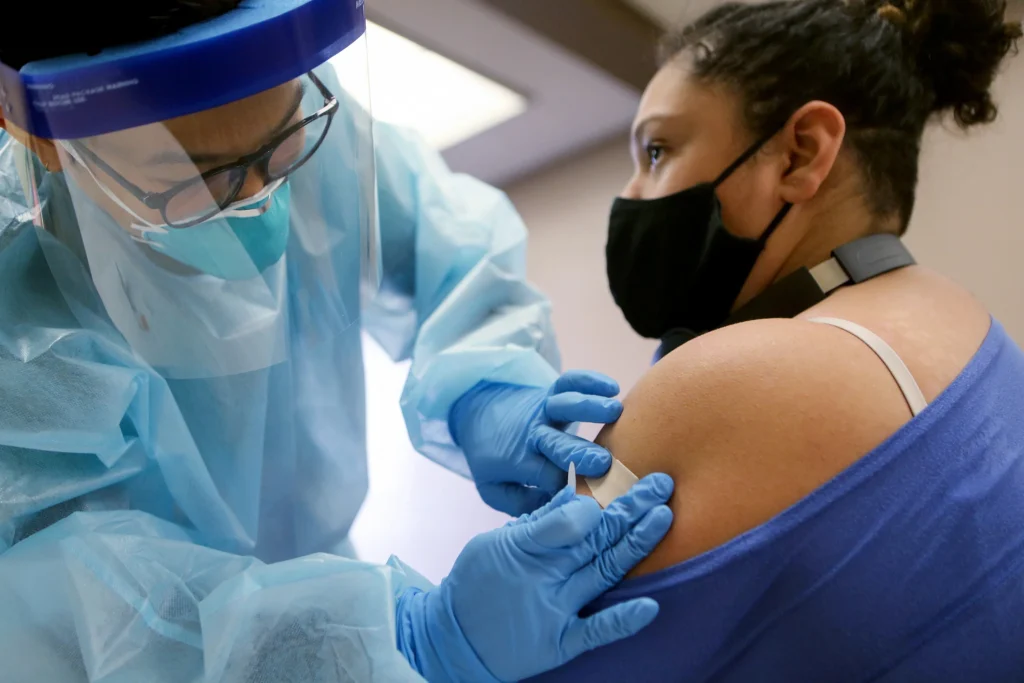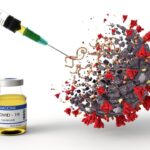Covid-19 vaccination (emergency use authorization) pandemic has resulted in the development and distribution of vaccines aimed at curbing the spread of the virus and reducing the severity of its effects. A pivotal element in this effort has been the Emergency Use Authorization (EUA), which allowed for the accelerated approval of COVID-19 vaccines to address an urgent public health crisis. This article explores the intricacies of EUA, its role in the COVID-19 vaccination process, and its impact on public health initiatives worldwide.

What is Emergency Use Authorization (EUA)?
Emergency Use Authorization (EUA) is a regulatory mechanism provided by the U.S. Food and Drug Administration (FDA) that allows for the use of medical products, including vaccines, during public health emergencies. Under normal circumstances, a vaccine must undergo extensive clinical trials and meet rigorous standards for safety and efficacy before it can be approved for general use. However, in the face of a public health emergency such as the COVID-19 pandemic, EUA provides a pathway for faster approval when scientific evidence suggests that the benefits of a product outweigh its risks.
The EUA process was designed to allow for rapid deployment of critical medical interventions while ensuring that the safety and efficacy of the product were still thoroughly evaluated. This process helps expedite the availability of life-saving treatments, especially during urgent global crises.
The Role of EUA in COVID-19 Vaccine Approval
The rapid development of COVID-19 vaccines was made possible in part through the use of EUA. As the pandemic spread worldwide, health organizations and governments recognized the need for an accelerated vaccine approval process. The FDA, alongside other global regulatory bodies, implemented EUA to authorize the emergency use of COVID-19 vaccines, allowing them to be distributed to the public before they received full approval.
Vaccine Development Timeline under EUA
The approval process for COVID-19 vaccines under EUA proceeded at an unprecedented pace. The development of these vaccines followed a rigorous process, including preclinical studies, Phase 1, Phase 2, and Phase 3 clinical trials, ensuring that they met essential safety and efficacy standards. Here is an overview of the typical vaccine approval timeline:
While the vaccine approval process was expedited, regulatory agencies ensured that the vaccines underwent all necessary testing before being authorized for emergency use.
Safety and Efficacy of COVID-19 Vaccines under EUA
One of the most common concerns surrounding vaccines authorized under EUA is their safety and efficacy. The COVID-19 vaccines authorized under EUA went through comprehensive clinical trials to assess their safety profiles, including monitoring for adverse reactions and long-term effects.
Vaccine Safety
All COVID-19 vaccines that received EUA underwent rigorous testing to assess their safety, with thousands of participants involved in the clinical trials. The FDA and other regulatory bodies reviewed the data carefully to ensure that the vaccines did not pose significant risks to public health. Common side effects of the vaccines include pain at the injection site, fatigue, headache, and mild fever, all of which are typically short-lived.
Adverse reactions such as severe allergic responses were also monitored, with guidelines in place to ensure that individuals who experienced such reactions could be promptly treated. The ongoing monitoring of vaccine safety through systems like the Vaccine Adverse Event Reporting System (VAERS) continues to ensure that any potential risks are identified and addressed swiftly.
Vaccine Efficacy
The efficacy of COVID-19 vaccines under EUA was thoroughly evaluated in clinical trials, with promising results. The vaccines demonstrated significant effectiveness in preventing COVID-19 infection, as well as reducing the severity of the disease in breakthrough cases. Most of the vaccines authorized under EUA showed efficacy rates exceeding 80%, with some even reaching higher levels, especially in preventing severe disease and hospitalization.
Vaccines such as the Pfizer-BioNTech and Moderna vaccines, both of which use mRNA technology, demonstrated high levels of efficacy in preventing symptomatic infection and severe outcomes. In addition, these vaccines were found to be effective against multiple variants of the virus, though ongoing research continues to assess their effectiveness against emerging strains.
The Global Impact of EUA on Vaccination Campaigns
The authorization of COVID-19 vaccines under EUA has had a profound impact on global vaccination efforts. By allowing vaccines to be distributed swiftly, governments and health organizations were able to prioritize high-risk populations, including healthcare workers, the elderly, and individuals with underlying health conditions.
Expedited Distribution and Access
The EUA process enabled the rapid rollout of vaccines across the world, leading to mass vaccination campaigns that have been pivotal in controlling the spread of COVID-19. With the authorization in place, vaccine manufacturers could scale up production and distribution, ensuring that doses reached countries in desperate need of supplies. As a result, millions of individuals were able to receive protection from COVID-19 in record time.
Public Confidence and Trust in Vaccines
Despite the expedited approval process, regulatory agencies and health authorities have emphasized the importance of transparency throughout the EUA process. Public health campaigns have been critical in building trust among the population, addressing concerns about vaccine safety and encouraging widespread participation in vaccination programs. This trust has been vital in achieving high vaccination rates, which are essential for reaching herd immunity and ultimately ending the pandemic.
Transition from EUA to Full Approval
While the EUA process allowed for the swift distribution of COVID-19 vaccines, the ultimate goal is to achieve full approval from regulatory bodies. Full approval requires the submission of additional data on the long-term safety and efficacy of the vaccine, and this process continues to evolve as more information becomes available.
The transition from EUA to full approval typically occurs after a thorough review of long-term data, which may take several months or even years. However, once full approval is granted, the vaccine can be marketed without the restrictions that apply to emergency use, providing further reassurance to the public about its safety and effectiveness.

